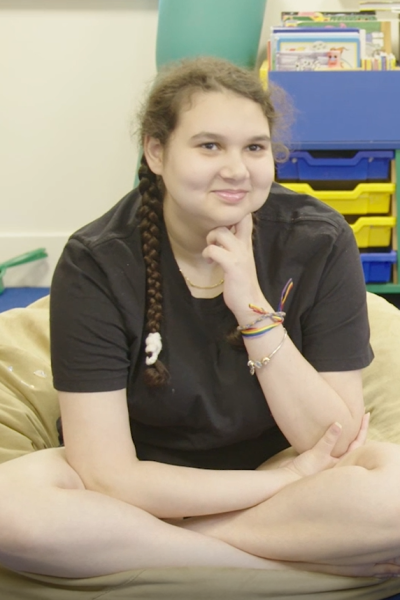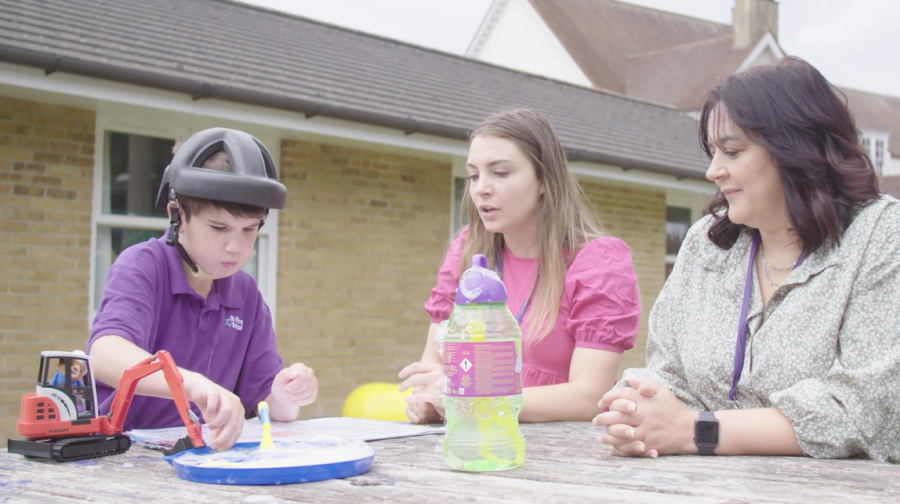What is Drug Resistant Epilepsy?
So, what is drug resistant epilepsy?
If you have epilepsy and you’re undergoing diagnosis or treatment, you might have heard of drug resistant epilepsy (DRE). It’s actually more common than you might think, and it affects around 20-25% of young people who have epilepsy.
DRE occurs when a person has tried at least two anti-seizure medications (ASMs), either separately or together, without any positive results. So, this means the medications haven’t been able to improve the frequency of someone’s seizures or haven’t been able to reduce the severity of their seizures.
Just so you know, drug-resistant epilepsy can also be called “refractory”, “intractable” or “uncontrolled” epilepsy.
Anyone whose seizures have not been controlled, after trying two different drugs, should try to see a specialist epilepsy doctor as soon as they can. These specialists can help to identify the cause of their condition and see if there are better treatment options.
An early diagnosis of DRE is super important - because it can take time to find effective, alternative therapies when the first ASMs don’t work.
In fact, children, teenagers, and young adults with DRE may often need a different combination of medications or therapies as they grow older. So, they should be checked by specialist epilepsy doctors over time, to make sure they get the most suitable treatments and care at each stage.
How does DRE differ from other types of epilepsy?
Anyone with epilepsy, or the carer of someone with epilepsy, should watch out for signs of DRE. The list below may only look like small changes, but they can interfere with someone’s quality of life!
You should talk to a specialist epilepsy doctors if you, or someone you care for, experiences the following changes:
-
More frequent seizures
-
More severe seizures
-
Longer seizures than usual
-
Loss of consciousness for a long time
-
Difficulty waking up after a seizure
Someone with uncontrolled epilepsy may also experience a type of seizure called status epilepticus – and this will require urgent treatment. You might have already heard of status epilepticus – as we have an article about it on The Channel. It’s basically when a seizure lasts longer than 5 minutes, or a person has more than one seizure within a 5-minute period, without returning to their usual level of awareness.
What causes drug resistant epilepsy?
Although doctors don’t understand all the causes of DRE, research is helping them to recognise possible causes. For example, seizures can be drug resistant or uncontrolled because of:
-
The wrong diagnosis of seizure type or epilepsy syndrome
-
Incorrect medication or incorrect dosage of the medication
-
Not taking the correct medication doses on time
-
Other medications that cause drug interactions, reducing the effectiveness of epilepsy drugs
-
Non-epileptic conditions that may cause the seizures
-
Lifestyle: like lack of sleep or stress, these may limit how well a medication works
In many cases of DRE or uncontrolled epilepsy, the actual cause is unknown.

How can it be diagnosed?
Doctors will use a lot of methods to diagnose DRE or intractable epilepsy, such as:
-
Medical history. Since DRE may be affected by a few health conditions and treatments, doctors will ask questions about the drugs a person has taken, and other symptoms they may have
-
Electroencephalogram (EEG): Can measure the electrical activity of the brain, and help doctors identify epilepsy
-
Blood tests: These may be taken to look for levels of medication in their blood and potential other causes of seizures
Remember that early diagnosis of DRE in children and teens is super important. This early diagnosis can allow doctors to find the best treatments for each person and help improve their long-term health.
What are the effects of drug resistant epilepsy?
The symptoms and effects of DRE can really vary!
It’s super normal for uncontrolled epilepsy to affect the physical, emotional and mental health of DRE children, teenagers and families. That’s why it really helps to talk to support groups and other families who are dealing with the same condition.
People with DRE have a higher risk of learning disabilities and physical injuries. The good news is that finding specific, alternative therapies to ASMs for each individual patient can help to reduce this risk.
Does it affect life expectancy?
The life expectancy for those with DRE is different for everyone. This depends on the types of seizures they have, and how severe the seizures are. Young people with DRE who have both seizures and learning problems are the most vulnerable.
It’s important that DRE children receive early diagnosis to make sure they receive effective, alternative treatments, and live life to the full. Also, a person with DRE should visit their specialist epilepsy doctor on a regular basis and follow their guidance. They should also keep track of any triggers that may cause their seizures and try to avoid them.
Are there treatments available and is there a cure?
Every person with this condition will be affected differently. So, depending on the symptoms involved, there are a range of different therapies available.
A doctor may try several medications or a combination of treatments to find the right solution for each person. They may also suggest different doses of ASMs.
If ASMs are not effective, then doctors will investigate other possible therapies. These could include epilepsy surgery, the ketogenic diet, Vagus Nerve Stimulation (VNS) therapy, and lifestyle changes.
If you are caring for someone with DRE, your medical team and other professionals will help you to find the best treatment, social, management and educational plan to achieve a good quality of life.
Although this can be a challenging condition, you are not alone. Find other parents to chat to on The Hub or reach out to us here if you need someone to talk to.

